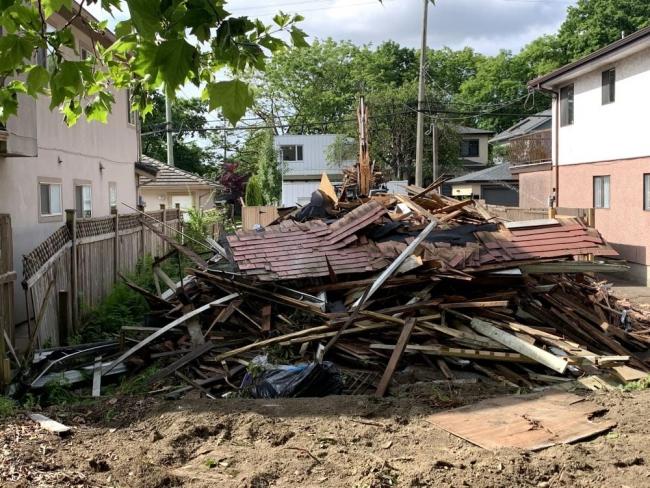Articles Menu

July 29, 2025
[Editor’s note: This letter, signed by 27 prominent B.C. experts in urban planning and architecture, was sent last week to Prime Minister Mark Carney and Minister of Housing Gregor Robertson, and was cc’d to, among others, B.C. Premier David Eby, B.C. Minister of Housing Christine Boyle and Vancouver Mayor Ken Sim.]
July 22, 2025
To: The Honourable Mark Carney, Prime Minister of Canada, and the Honourable Gregor Robertson, MP, Federal Minister of Housing and Infrastructure
Re: Advancing Housing Affordability Through Bold, Evidence-Based Policy
We are a Metro Vancouver region-based group of urbanists, urban planners, architects, developers, and UBC/SFU academics, most with decades of experience, who have joined together to broaden the search for enduring housing solutions.
While our primary focus is on Vancouver, our comments below are also applicable to cities across Canada that are also struggling with affordability issues.
Canada’s housing crisis demands a reset in how we use public policy to achieve affordability. The current market correction presents an opportunity — not a threat. Governments should not bail out speculative development models but instead use this moment to invest in non-market housing, preserve existing affordability, and ensure that public subsidies serve long-term public outcomes.
1. Canada’s housing strategy must deliver affordability, not just more supply
Canada’s housing crisis is, above all, a crisis of affordability. Supply has increased significantly in cities like Vancouver — where housing starts have outpaced population growth for decades — yet prices remain disconnected from incomes. Vancouver provides one of the most comprehensive real-world tests of this theory. Between 1960 and 2020, it increased its housing stock by over 200 per cent while population grew by only 78 per cent — more than any other North American central city. Yet its housing affordability declined dramatically, and it now has the highest home-price-to-income ratio on the continent.
This data, drawn from Statistics Canada and U.S. census sources, suggests that increasing housing density alone is insufficient to produce affordability. Without addressing land value inflation, financial speculation and tenure security, supply-side interventions risk worsening the very crisis they aim to solve.
2. Use the market correction as an opportunity, not something to resist
3. Public subsidies must deliver public benefit outcomes
4. Preserve what’s affordable, don’t displace it
5. Reform delivery and financing models to align with residents’ needs
6. Rebalance costs and benefits between all orders of government
Conclusion: We encourage and support building more affordable livable housing rather than continuing to build the wrong kinds of housing, in the wrong places, for the wrong reasons.
We believe the federal government can lead the way by restoring affordability as the central objective of housing policy.
That means resisting short-term pressure to rescue flawed models and instead embracing long-term investment in public, non-profit and community-led housing.
It also means preserving existing affordability, and building new homes that serve real people, not just markets.
We welcome the opportunity to meet with you to explore how these strategies can shape a more sustainable and just housing future for all Canadians.
Signed,
David Ley, OC, FRSC, PhD, urban geographer, professor emeritus, UBC;
Christina DeMarco, urban and regional planner, former lead planner for the Metro Vancouver Regional Growth Strategy;
Penny Gurstein, PhD, MCIP (retired), professor emeritus and former director, School of Community and Regional Planning, co-director, Housing Research Collaborative, UBC;
Larry Beasley, CM, FCIP, former co-chief planner, City of Vancouver, author, Vancouverism;
Patrick Condon, professor, School of Architecture and Landscape Architecture, UBC, author, Broken City, former city planner, James Taylor Chair in Landscape and Liveable Environments;
Scot Hein, retired architect, MAIBC, former City of Vancouver and UBC senior urban designer and development planner, adjunct professor, urban design, UBC, SFU Faculty Continuing Studies, founding board member, Urbanarium, board member, Small Housing BC, housing advocate;
Brian Palmquist, award-winning architect and author, AIBC, MRAIC, BEP, CP, LEED AP;
Arny Wise, B.Comm., M.Sc. (planning), U of T, professional planner, MCIP, RPP (retired), board of directors, Toronto Economic Development Corp. (1990-99);
Sean McEwen, architect, AIBC, FRAIC, affordable housing advocate;
Barbara Gordon, retired architect, AIBC, retired director of capital planning, UBC;
Lance Berelowitz, AA Dipl., RPP, MCIP, principal, Urban Forum Associates;
Michael Geller, FCIP, RPP, MLAI, retired architect, AIBC, urban planner, real estate consultant, developer and adjunct professor, SFU;
Elizabeth Murphy, private sector project manager formerly with the City of Vancouver’s housing and properties department, BC Housing and BC Buildings Corp.;
Bill McCreery, B.Arch., UMan, Sub-Lt., RCNR, helped create North and South False Creek and thousands of units of developer and public housing in Vancouver;
Graham McGarva, FRAIC, retired architect, AIBC, MA;
Erick Villagomez, lecturer, School of Community and Regional Planning, UBC, principal, Mētis Design|Build, editor-in-chief, Spacing Vancouver;
Norman Hotson, retired architect, AIBC, FRAIC, RCA, HonPIBC;
Mary Pynenburg, MRAIC (retired), MCIP (retired);
Robert Renger, BES, MCP, consultant city planner, former senior development planner and city’s lead for UniverCity at SFU, City of Burnaby;
Andy Yan, FCIP, RPP, GISP, director, City Program, lifelong learning and associate professor of professional practice, Urban Studies Program, SFU;
Tom Phipps, retired senior planner, City of Vancouver (33 years);
Sandy James, former City of Vancouver city planner, managing director, Walk Metro Vancouver;
Ralph Segal, MAIBC (retired), former chief urban designer, City of Vancouver;
Elvin Wyly, PhD, urban geographer, housing researcher;
Mary Beth Rondeau, retired architect, AIBC, former urban designer, City of Vancouver;
Frank Ducote, principal, Frank Ducote Urban Design, former senior urban designer, City of Vancouver;
David Wong, architect, AIBC, formerly with Engineering and Planning Department, City of Vancouver
[Top photo: A razed single-family home in Vancouver. More supply alone won’t deliver affordability, say 27 experienced professionals. Photo by David Beers.]